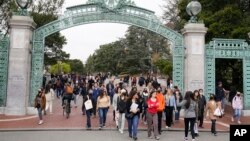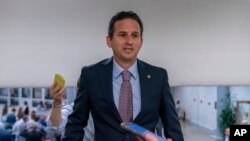Student Union
New in the Glossary of Confusing Words: Course
...units used to measure the contribution that an academic course makes towards attaining your degree. Universities require you to take a certain number of credits to graduate, and a certain number of credits each semester to maintain your status as a full-time student.
Ricardo came back at us with a request to define the word "course" as well. It's not the first time one of our definitions has led to even more questions, and we're happy to oblige!
Course
A course is the same thing as a class.
Each course meets for a few hours a week, and can include lecture sessions, discussion sessions and/or lab sessions. Of the courses you take each term, some will be required for completion of your major and some will be "elective" courses, meaning courses in subjects that are not your major.
So what's the difference between "course" and "credit" (you might be asking)? Good question!
The value of any individual course towards earning your degree is measured in credits. So each course is worth a certain number of credits, usually based on how many hours you are expected to spend on that course.
1 course = 1 or more credits
Here's an example of a conversation using the words "course" and "credit" in context:
"What courses are you taking this semester?"
"Psychology 101, creative writing, and statistics."
"How many credits is that?"
"Only 9. I need to find one more course that's worth 3 credits."
Just like with many words in English, "course" can have several other meanings as well. Those include: a path of travel ("Are we lost? I think we're off course."); part of a meal ("We're having chicken as the main course."); a progression ("She's accomplished a lot in the course of her career."); and an expression that something is expected or usual ("Of course I will come to your party.").
Have you come across a word related to education in the U.S. that you want to see defined in our Glossary of Confusing Words? Let us know in the comments or by using the form below.
Loading...
See all News Updates of the Day
Universities in Middle East building research relationships with China

As China bolsters research relationships with universities in the Middle East, the United States has taken notice – especially when that research involves artificial intelligence.
Reporting for University World News, Yojana Sharma has the story. (March 2024)
Tips for staying safe while studying in the US

Recent news events have raised safety concerns among some international students studying in the United States.
Adarsh Khandelwal, writing in the India Times, has tips for staying safe from the moment you arrive until the day you complete your studies. (March 2024)
Some colleges are making digital literacy classes mandatory

A 2019 study by Stanford found that most college students can’t tell the difference between real and fake news articles. Amid rampant online disinformation, and the threat of AI-generated images, some schools are making students learn “digital literacy” to graduate.
Lauren Coffeey reports for Inside Higher Ed. (March 2024)
With federal student aid delays, students aren’t sure what college will cost

The U.S. Department of Education’s federal student aid form (FAFSA) experienced serious glitches and delays this year.
Now, many students have been admitted to college, but don’t know how much money they’ll need to attend.
Read the story from Susan Svrluga and Danielle Douglas-Gabriel for The Washington Post. (March 2024)
Senator draws attention to universities that haven’t returned remains

More than 70 U.S. universities continue to hold human remains taken from Native American burial sites, although those remains were supposed to be returned 30 years ago.
Jennifer Bendery writes in Huffington Post that one senator has been using his position in an attempt to shame universities into returning remains and artifacts. (April 2024)







